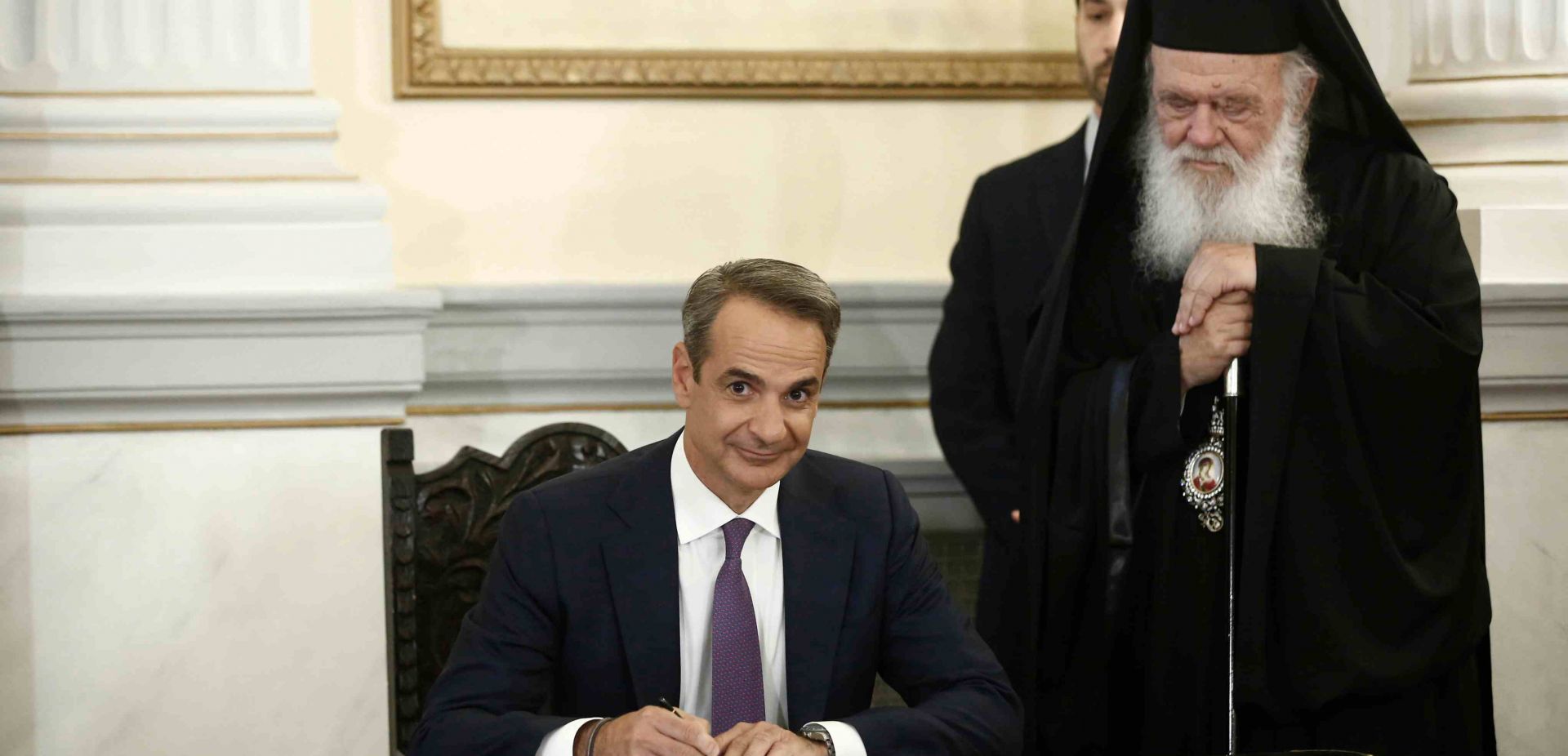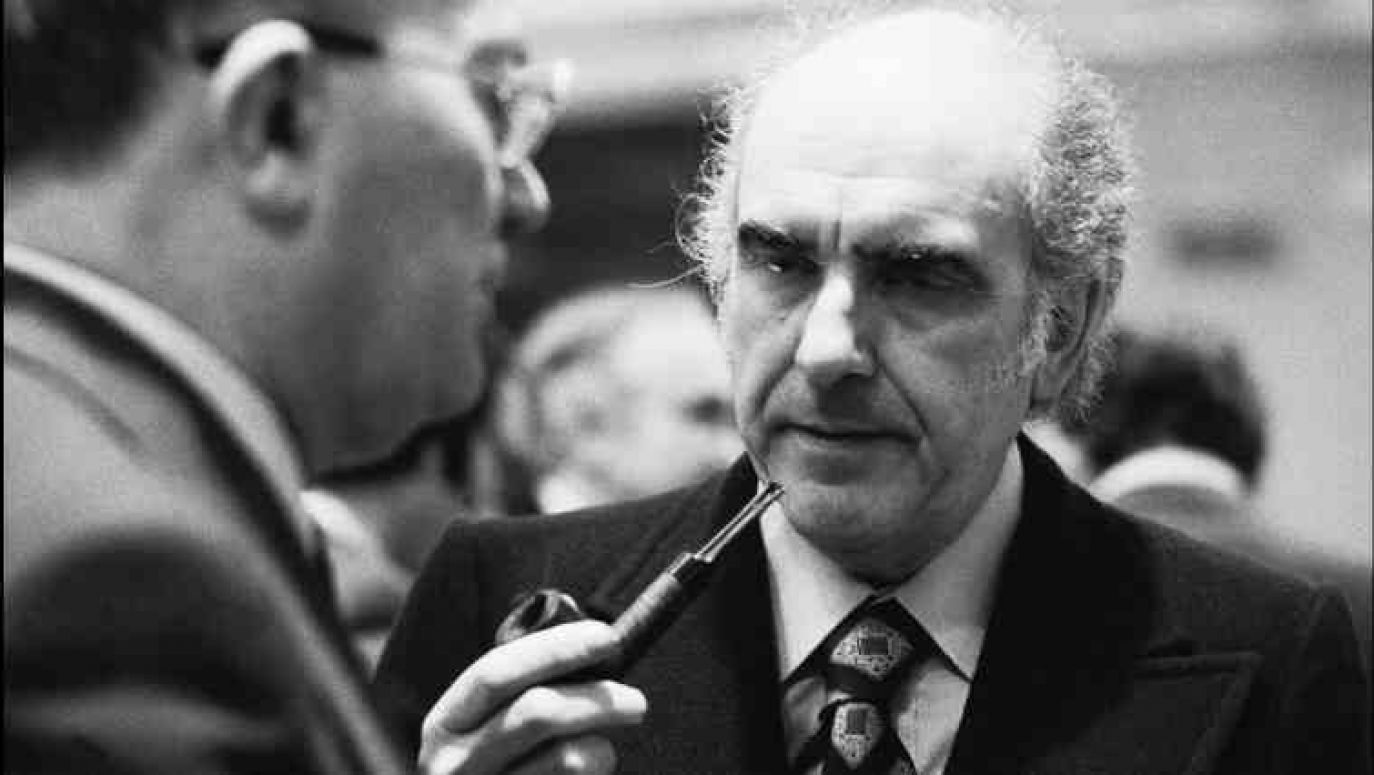The Karamanlis and Papandreu share humble beginnings, in families of Orthodox clergy or teachers. Against this background, the Mitsotakises are as if from another world because, although in a lateral line, they are descended from Elefterios Venizelos himself, considered the greatest leader of the Greeks since liberation from Turkish rule. Venizelos was Prime Minister on several occasions, from the early 20th century to the 1930s, including during the Balkan Wars, through which Greece superbly expanded its territory in the north, occupying Macedonia and Thrace.
Both families come from the western part of Crete and there they worked together already during Ottoman rule. Not surprisingly, family ties brought them together on various levels. Most important: the marriage of Konstantinos, great-grandfather of Kyriakos, a local politician from Chania, to Katigo, sister of Venizelos. When Crete was incorporated into Greece, members of both families consistently sat in parliament in Athens. The Mitsotakis family therefore has much to boast about.
Let us add that the nephew of the current Prime Minister, Kostas Bakojannis, son of Dora, is today the mayor of Athens. He is thus following in the footsteps of his mother, who also ruled Athens twenty years ago. Will he also follow in the footsteps of his uncle Kyriakos and grandfather, also Konstantinos, prime minister of the early 1990s? It is not certain, but very likely.
A life-and-death relationship
Those who see in the dynastic arrangements in force in the Greek political world only an intriguing curiosity are mistaken. It is not a curiosity, but an invariable manifestation of Greek peculiarity, different from the arrangements in other European countries, where, after all, there is no shortage of political families (especially in Great Britain there are those who are always present in politics in some way, starting with the Churchills). "For the 'Big Three' are not alone. It is surrounded no longer by a garland, but by a whole wreath of other clans, in and out of parliament. This is a manifestation of tradition and of the close ties between voters and politicians, but also of the conviction - not unfounded to some extent - that people who have grown up among MPs and ministers have politics in their DNA. And with this comes a natural ability to navigate its difficult field.
The Greek peculiarity, however, is that the clans here are bound to specific districts to the death. Voters accept this and MPs are sometimes so attached to their constituencies that they cannot imagine that this relationship could be severed. The case of New Democracy MP Joannis Tragakis is even anecdotal: a few years ago, when he decided to leave politics in the middle of his term, he offered to hand over his seat to his son, without a by-election. The manoeuvre failed because it could not work, but it perfectly illustrates the state of mind of many a member of political families.
It works the other way too, by the way. "How can we do such a thing to Andreas' son?" - sincerely worried the members of PASOK when the issue of taking the leadership away from Jeorjos Papandreu was on the agenda a few years ago. Jeorjos walked away at the time, but in the world of Greek politics, losing is never final, especially when it involves a man from a big clan. Jeorjos stepped back, waited it out, founded a new party, the Movement for Change (KINAL), and teamed up with PASOK, his former party, before the election. He is an MP, his prospects are uncertain, but he has not disappeared. His younger brother Nikos has been an MEP for a few months. He replaced Nikos Andrulakis, the leader of PASOK, when he decided to return to national politics.
The largest family political team, however, is not any 'Big Three' family, but the Cretan Kefalogiannis family, which has four MPs - three in parliament in Athens and one in Strasbourg. The latter, Manolis held the position of Minister of the Merchant Navy (very important in Greece) in the government of Kostas Karamanlis. The name Kefalogiannis won't say anything to anyone in the world - but the arrangement that gives such families a permanent place in politics says no less about Greece's political scene than the achievements of its giants.
–Teresa Stylińska
– Translated by Tomasz Krzyżanowski
TVP WEEKLY. Editorial team and jornalists

 SIGN UP TO OUR PAGE
SIGN UP TO OUR PAGE
 And Alexis Tsipras, the prime minister at the time of the crisis? This radical socialist, atheist, educated in Greece and not, as is customary in the great families, at Oxford or Harvard, outsider and strong critic of the old systems entered politics without any family background. Today he already has one, as his cousin Jeorjos has meanwhile become an MP.
And Alexis Tsipras, the prime minister at the time of the crisis? This radical socialist, atheist, educated in Greece and not, as is customary in the great families, at Oxford or Harvard, outsider and strong critic of the old systems entered politics without any family background. Today he already has one, as his cousin Jeorjos has meanwhile become an MP.





